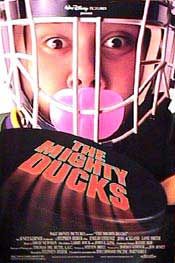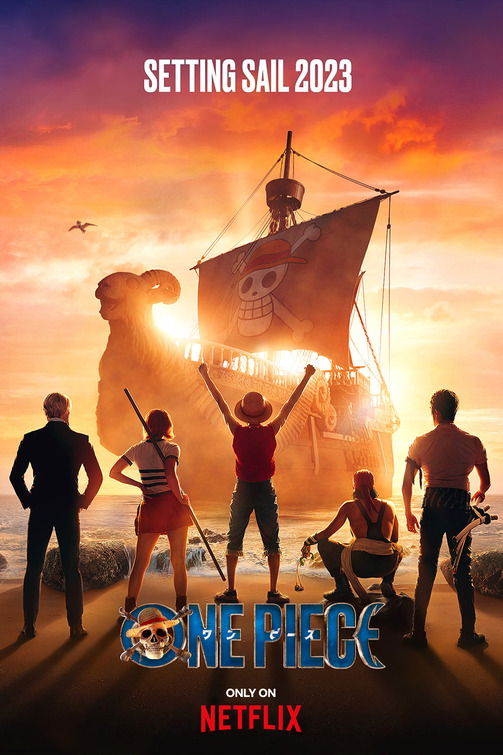“Exceptional Live Action Anime Fantasy”

| None | Light | Moderate | Heavy | |
|---|---|---|---|---|
| Language | ||||
| Violence | ||||
| Sex | ||||
| Nudity |
What You Need To Know:
Season One of ONE PIECE is very well produced and is largely faithful to the original series. Excellent storytelling, action sequences, and character development make this a very engaging TV program. Thankfully, the first season lacks woke elements. ONE PIECE so far has a strong moral worldview where a great crew has an abiding friendship. The main characters strive to do the right thing and display love, honor, self-sacrifice, and loyalty. However, Season One of ONE PIECE has some violence, foul language and alcohol use. So, MOVIEGUIDE® advises extreme caution.
Content:
Strong moral worldview with some redemptive content where a group of very different people become a close knit crew of like-minded heroes who strive to do the right thing and display love, honor, self-sacrifice, and loyalty, plus the protagonist, “a different kind of pirate,” protects the innocent and encourages others to follow their dreams and reach their unique potential, and the main characters fight an oppressive world government
Between five and eight expletives per episode, mostly light profanities and obscenities, with an occasional strong swear word (some middle fingers and a few “f” words)
Strong and light action violence includes the protagonist eats a fruit which turns his body to rubber and causing his body to stretch crazily during combat, the protagonist punches multiple people with a stretchy fist, a swordsman cuts an assassin in half (blood flows as top half slides off bottom half), a swordsman fights several marines in a bar without drawing his weapons, a pirate crushes several enemies with a large mace before being thrown overboard, a man is cut and breaks himself into many pieces in a fight but survives after eating a devil fruit, two characters harm themselves with a knife, and miscellaneous fighting
No sex; Nu-dity: A naked man swings a sword in front of multiple mirrors and puts a stuffed animal over his crotch when someone walks in on him (upper body, buttocks, and legs exposed),
Many pirates and other people consume strong drinks like rum, plus one character gets drunk
A couple characters smoke cigars and cigarettes, but no drugs; and, Miscellane-ous Immorality: Some thieving but usually the protagonist discourages thieving, some moral relativism, and one character lies, but eventually tells the truth and is redeemed.
More Detail:
Monkey D. Luffy dreams of becoming the king of the pirates. After eating a “devil fruit” he is given the power of a seemingly impenetrable, stretchy body. He goes about helping those in need and seeking strong and talented people to build an unbeatable crew. His plan is to sail to the Grand Line and find the legendary treasure, the One Piece.
As he does so, he runs into an eclectic bunch of misfits and masterminds. From the deadly swordsman, Zoro, to the sly thief, Nami, Luffy adds crew members, gathering a group of friends to go on a great highseas adventure.
However, not all is sunny and bright. Zoro is a target for many, Nami desires a map of the Grand Line for her own concealed purposes, and every new crew member brings his or her own baggage.
However, Luffy’s enthusiasm never flags. Describing himself as “a different kind of pirate,” one who protects the innocent and encourages others to follow their dreams and reach their potential, Luffy eventually gains not only a ship, a navigator, and a very loyal crew, but ultimately an unconventional family.
The new series is a faithful, fun, convincing live action version of a long running and popular animated Japanese series, ONE PIECE, which was itself developed from a Japa-nese comic book or manga comic. The protagonist, Monkey D. Luffy, is the same exu-berantly adventurous, food-loving, adept student of human potential that he is in the ani-mated classic. In general, the live action program’s creative team sticks closely to their source material. The action and adventure throughout are top notch, and the show is therefore exciting and engaging. From the opening episode to its finale, the program’s first season tells a truly enjoyable story.
Generally, characters are very well drawn in the image of their animated counterparts. One notable (and often frustrating) departure from the original Anime is the changes in the character of swordsman, Roronoa Zoro. He is now a hip, postmodern, present-day Asian pop cultural icon rather than the upstanding and much more likable character he was in the Anime series. Unlike the anime show, Zoro is always looking for alcoholic drinks, although he never gets drunk. However, he, along with everyone else, is changed for the better by Luffy’s infectious laugh, investment in others, and deep and genuine friendship.
Season One of ONE PIECE has a strong moral worldview where a group of very differ-ent people become a close knit crew of likeminded heroes. They eventually become a surrogate family to each other. They have each other’s backs and show marks of deep and abiding friendship. Also, the main characters strive to do the right thing and display love, honor, sacrifice, and loyalty. Specifically, the protagonist, Luffy, “a different kind of pi-rate,” protects the innocent and encourages others to follow their dreams and reach their unique potential. The series is so appealing in large part because it shows a group of peo-ple becoming what so many desire, a really solid family.
This first season is notable for the lack of any discernible woke elements. The program has some moral relativism where the pirates are the good guys, while the marines are of-ten portrayed negatively. However, the marines are being controlled by a “world govern-ment,” so this plot element may turn out to be an excellent piece of social satire.
Objectionable content is not absent, however. The show has violence and a little bit of foul language in each episode. For example, one scene of violence shows a man cut in half by a swordsman (his top half sliding off his bottom half with some blood flow). Sadly, there are some middle fingers, a few “f” words, and other, lighter foul language. There is one scene of brief male nudity in one episode, and many of the male characters wear their shirts unbuttoned. Some characters are too fond of alcohol, and at least one character gets drunk. Two characters harm themselves with a knife, but friends help them realize why they shouldn’t do this.
For all these reasons, MOVIEGUIDE® advises extreme caution.


 - Content:
- Content: 
